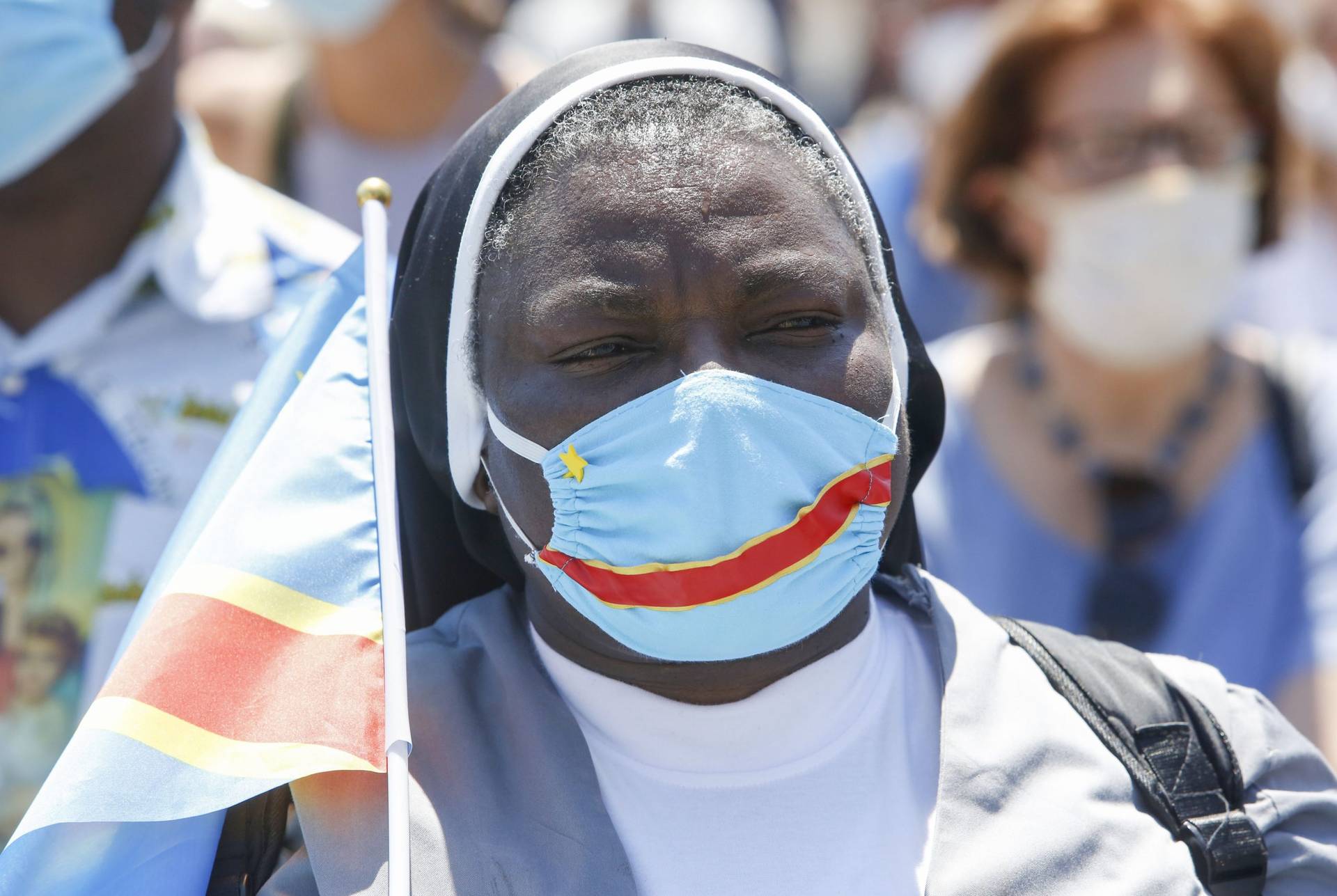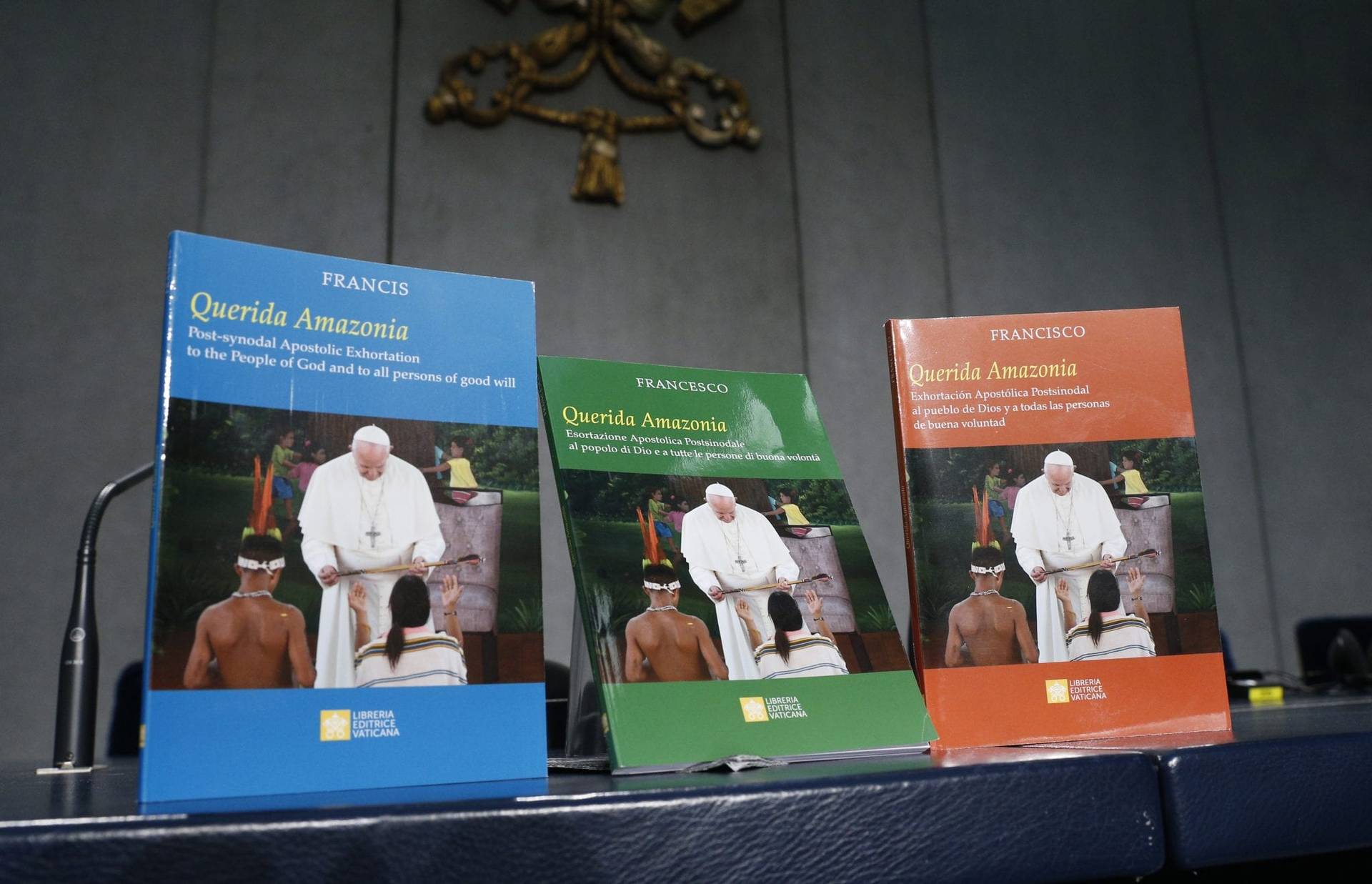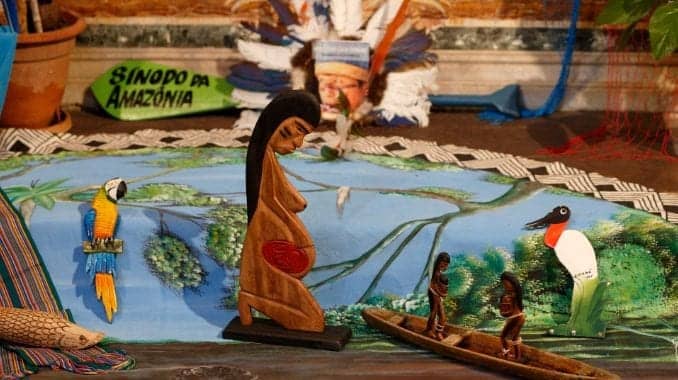ROME – It’s admittedly a bit of a discordant note in a synod of bishops in which the Church’s social gospel, focused on the poor, the climate and the indigenous people of the region, is a touchstone, but one prelate taking part says the point of departure really shouldn’t be the slums of the Amazon but the person of Christ.
“I told my seminarians 32 years ago: if we begin from the periphery, from the favelas [Brazil’s famous slums] to try to find Christ, our efforts won’t come to fruition, because we’ll encounter thousands of enemies along the way,” said Italian Bishop Giuliano Frigeni, 73, who’s served in Brazil’s Amazon region for 40 years and been the bishop of Parintins since 1999.
“But if our faith starts with Christ, when we reach the periphery, we’ll be able to say we have found him,” the bishop said. “We have to start from Christ if we want to reach those who’ve been discarded by today’s world.”

Speaking with Crux, he said that during the discussions, it’s important to take into consideration two – not just one – of Pope Francis’s central documents: One on evangelization, called Evangelii Gaudium or the Joy of the Gospel and released in 2013; and Laudato Si’, an encyclical letter from 2015 on the need to care for creation and address the challenges of climate change.
“They are not in opposition, but if we lose the Evangelii Gaudium, we run a risk … We, bishops, with our priests, missionaries and laity, do not have the need to demonstrate in the square, we have the need to evangelize, reaching everywhere,” he said.
On the subject of Liberation Theology and the choice for the poor that the Church in Latin America made in the late 1960s and early 1970s, Frigeni said that as it unfolded Evangelicals became more powerful, with preachers of the Renewal of the Spirit, who say that “whoever loves the Lord will be filled with gifts, find a job, have a better house … They offered the theology of prosperity instead of our theology that kept saying ‘the poor at the center, the poor at the center’,” he said.
“Well, the poor said ‘It’s all good, but I’m going with those ones who are offering salvation,” Frigeni said. “The problem with that is that Christ didn’t come to solve our financial problems, but to give us a different look on life. Our preferential option has to be Christ. From him, we reach the poor.”
Frigeni, who when he arrived in Parintins found a diocese with 17 missionary priests and five indigenous and which today has 19 indigenous priests and five foreign missionaries – all of them older than him – is not afraid to be critical of the synod’s instrumentum laboris, the document that is being used as the backbone of the discussions and which will be re-written to reflect the discussions.
It was written largely with the help of the REPAM, the Amazon’s ecclesial network, that consulted some 80,000 people from the region and organized several encounters with the bishops in preparation for the summit in Rome.
“We spoke about everything during these encounters,” Frigeni said. “Of the problems of the earth, the ecology, the need to find a new path to evangelize these peoples when it’s very hard to find missionaries who speak the 400 different languages that the indigenous speak.”
“But in these encounters, our attention was in seeing this region that is being fought over by those who want to exploit the resources against the will of the people who live in the Amazon,” he said. “And as bishops, we’re ever more worried on these political, social and anthropological problems, fighting against those who wished that as a church, we didn’t care for these people.”
Yet, he said, during these meetings, there was very little profound dialogue. He expected for that to happen during the synod with each participant defending their own thesis, with some saying that it “would be nice to talk about married priests.”
“But I believe that if we make these great parents, who are great missionaries, priest, we’ll clericalize them, confounding being a priest with being powerful,” he said, referring to the much talked about suggestion of ordaining the viri probati, meaning married men of proven virtue.
“Women too are complaining, saying that they have no power because they cannot vote,” he said.
“But Pope Francis is not worried about who has power,” he said. “The pope wants evangelization. His sensitivity is focused on how to reach everyone, understanding that the Gospel is the best way to take care of the people. If we arrive, but the Gospel doesn’t, it’s all ideological: The fight against this one or in favor of that one, nothing else.”
“Without the Gospel,” he said, “we hurt those we’re fighting for.”
One of the preparatory meetings took place in Belen, Brazil. The bishops received a silver cross with a pinkish stone at the center. One of the coordinators of REPAM, Frigeni said, explained that it represented the “blood of our fighters who gave their lives in the defense of the Amazon.”
“I had to stop him and say, ‘no, young man. This is the blood of Christ,’” he told Crux, voicing frustration over the fact that he sometimes feels REPAM is trying to say that every religious, priest or missionary who came before the network was formed has done nothing.
One of the challenges the synod faces, he said, is the assertion of the primacy of culture over the primacy of the Gospel, which in his opinion is wrong. The Church is not in the Amazon “only to preserve the culture of the indigenous.”
Reevaluating cultures, Frigeni said, is not a novelty for the Catholic Church. He gave St. Thomas Aquinas as the primary example, arguing that in the XIII century, for a year, the pope forbade this doctor of the Church from teaching because he was lecturing on Greek culture, using “pagan philosophers to explain the mystery of transubstantiation.”
“The Church is capable of welcoming all the positive things each culture has,” he said. “But we’re not there just to save the culture or to put it as a priority ahead of the Gospel.”
During his hour-long conversation with Crux, Frigeni also said that the primacy of the Gospel on the synod doesn’t mean that the environment is not important. In this sense, he regretted that while the world agonized this year over the fires that caused unimaginable damage to the Amazon rain forest, no one discussed the danger of the countless hydroelectric projects in the region.
“They submerge millions of plants at the same time, to generate ‘clean energy’,” he said. “Clean for whom? They’re a thousand times worse than fire.”
Furthermore, in many places the energy produced is being used to melt aluminum and other precious metals that are extracted from the Amazon, making the circle of destruction even bigger.
The Church is called to help protect the environment, and to advocate when possible in favor of the indigenous peoples, who are being forced to change their way of life due to the destruction being caused by the extractivist industries and slash-and-burn agriculture.
“Again, Laudato Si’ and Evangelii Gaudium,” he said. “If we forget the second, we’ll be nothing but good people who want to fight the exploitation of the Amazon rainforest.”
Asked about what he has learned from the Amazon and the people who’ve lived there for centuries, Frigeni said he learned what his mother tried to teach him when he was growing up: Patience, because “the forest is slow;” humility, because “greed threatens life in the rainforest;” and prayer.
A few weeks before travelling to Rome, the bishop visited one of the indigenous communities in his diocese. While there, he invited a group of people to pray the Our Father.
“There was a child there … He prayed with an intensity that I know I’ve never had, that I wish we saw more of,” he said. “The Gospel is not violence, it’s something that’s a part of the lives of the indigenous too.”
Follow Inés San Martín on Twitter: @inesanma
Crux is dedicated to smart, wired and independent reporting on the Vatican and worldwide Catholic Church. That kind of reporting doesn’t come cheap, and we need your support. You can help Crux by giving a small amount monthly, or with a onetime gift. Please remember, Crux is a for-profit organization, so contributions are not tax-deductible.















